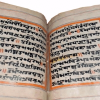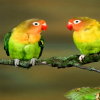
History of literature-Part 1
Literature shows us what happened in a particular era, the art of written work, a beauty of expressions, it helps us to learn the cultural of people across time and space.
Over thousands of years, huge literature has been produced in various languages in India. It is to be noted that a large part of Indian literature revolves around devotion, drama, poetry and song which has a tremendous variety to offer. India has a vast storehouse of literature, from the Puranas, the Panchatantra folktales to ghost stories. It has given birth to its own distinct set of literature. Literary tradition in India is primarily oral in vernacular languages, this is passed from generation to generation without manuscript generally sung or recited.
It was in the 16th century that an extensive written literature appeared. The reason for this change was the literary predominance of Sanskrit and the emergence of Hindu pietistic movements that sought to reach the people in their spoken languages. The earlier forms of Indian literature was religious which include Vedas, Brahmanas, Aryankas, Upanishads, Sanskrit Epics-the Ramayana, Mahabharata, and the mythological writings know as Puranas. The literatures of this period are in Sanskrit Pali and Prakrit.
Indian literature is generally believed to be the oldest in the world, and with vast cultural diversities there are around two dozen recognized languages in India. Over thousands of years, huge literature has been produced in various languages. Sanskrit language is dominated the early Indian literary scene whereas languages like Pali and Prakrit to had a fair share as they were the languages of the common people. Hindi literature in dialects like Avadhi and Brai, began around religious and philosophical poetry in medieval period. Sant Kabir and Tulsidas were the greatest exponents of the Hindi literature. With the passage of time, the Khadi boli (dialect) became more prominent and saw a great upsurge, which continues to this day.
History of literature in India can be smoothly divided into three periods, comprising of the ancient, the medieval and modern or contemporary. The period of the Ancient Indian Literature can be delineated by those very first orally transmitted (shruti) valuable treatises in the guru-shishya mode, which gradually were replaced and revived in the Vedic Period, denoting just the commencement of Golden Age in India, through Sanskrit literature. Second in line was to arrive the era of Medieval Indian Literature which witnessed a shift towards much more religious zealousness in regional divisions, although Sanskrit still was retained as the essential penmanship language. The Bhakti Movement was largely responsible for such a breakaway from the ancient 'Golden Moments'
Islamic influence perhaps comes second in the illustrious lineage of literary development. Indeed, the advent of Islam in India, through the Persian Silk Route, had brought in significant change of style in writing, speaking or preserving during the medieval period, Muslim literary traditions dominated a large part of Indian literature and saw flourishing of Muslim literature. Muslim rule during the medieval times saw rapid growth and development of Persian and Urdu literature in India. A huge variety of literature spanning across history, culture and politics was written in this period.
With the coming of the British in India, works started to be written in English language. As more and more Indians became well versed with the English language, the number of works in English literature began to grow. During the contemporary times, numerous Indian authors have made their mark on the world English literature scene. Some of the most noted Indian born or Indian writers are R. K. Narayan, Vikram Seth, Salman Rushdie, Arundhati Roy, Amitav Ghosh, Khushwant Singh, Anita Desai and Jhumpa Lahiri.
Indian literature caters the wide bifurcation between the ancient scriptures to the adapted colonial tongue. It thus, becomes evident that the history of Indian literature assimilates within itself an endless variety of untold stories and facts from ancient, medieval and comparatively modern times, which can be personified as a living entity.
About the Author





Comments